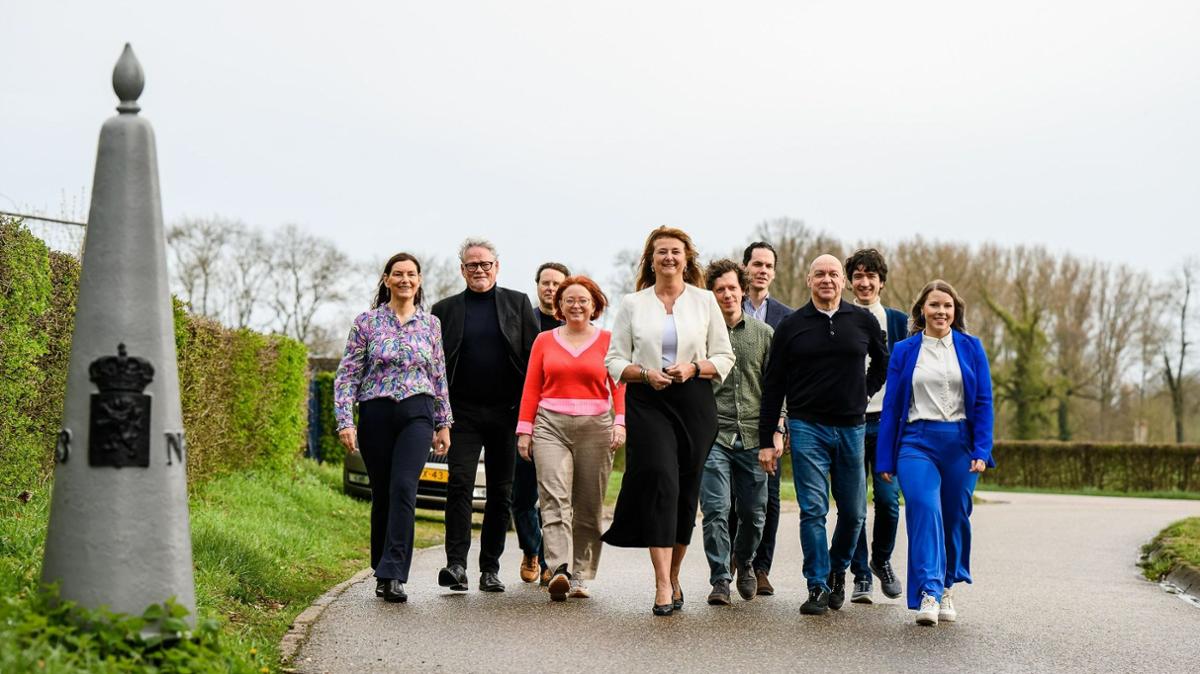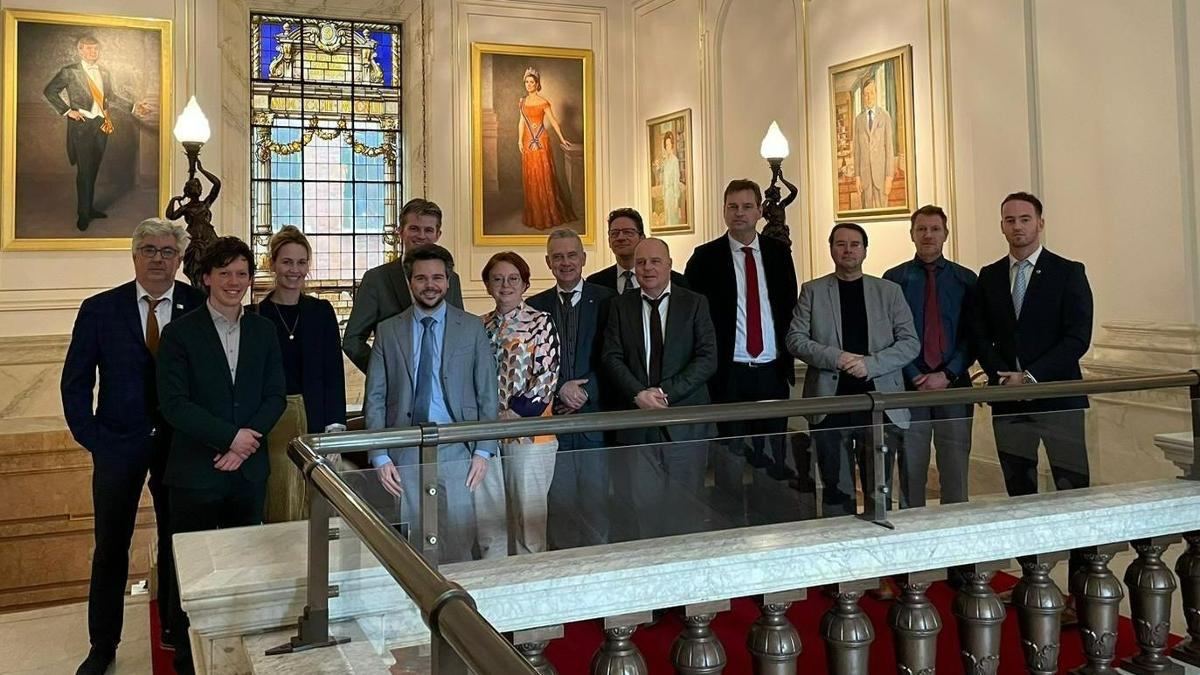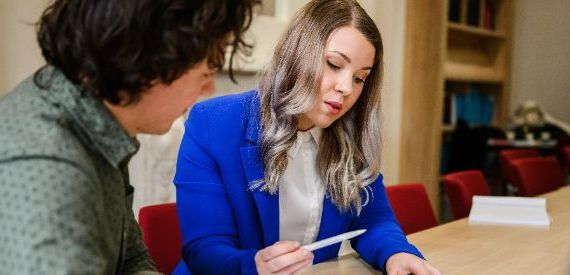 |
| Foreword |
2024: ITEM commits to strengthening European border regions in policy
Dear all,

The year 2024 is an important year for border regions in several aspects. Rarely do so many elections take place in the world as in 2024, with some 70 countries sending people to the polls. On 9 June, for instance, Belgium will hold elections for both the European Parliament, the Chamber of Representatives and the Regional and Community Parliaments. It is an important moment for the direction and future of the development of border regions and cross-border cooperation. The status quo is not enough, the various ITEM studies have shown. On the one hand, opportunities and border obstacles cannot be adequately addressed and facilitated in policy, and on the other hand, policy does not sufficiently take into account the position of border regions. This is also recognised by the European Commission: the Eighth Cohesion Report and the Better Regulation Communications identify shortcomings for border regions.
To this end, initiatives have also been deployed that will be put on the agenda under the Belgian presidency of both the Council of the European Union and the Benelux Committee of Ministers to move forward. The ninth Cohesion Report will follow in the first quarter of 2024. This will present substantial reform options for the future of cohesion policy, including cross-border cooperation. This discussion will be tabled from 2024 onwards, with the European elections in the summer as an important starting point... |
|
|
|
|
|
 |
| Results Pensioenseminar Maastricht |
| Central theme during the 13th Pension Seminar was 'solidarity'. Within sociology, 'solidarity' is defined as the positive bond of fate between individuals or groups; a situation in which dependency relationships are characterised by help from the stronger to the weaker, or the defence of common interests. Societal trends justify the choice within the Future Pensions Act for a pension scheme based on personal pension assets with collective risk sharing. Reflections within the Dutch and Scandinavian scopes allowed the seminar to conclude that a solidarity-based pension scheme is not necessarily better or worse than a flexible contribution scheme. It was concluded that collectivity and solidarity is certainly about insurance risks and especially about socially relevant schemes that deliver more. This needs to be made explicit for better support (read: trust). That is the challenge facing the pension sector now. |
|
|
|
|
|
 |
| ITEM-Montae webinar |
| The third edition of the ITEM-Montae pension expert sessions took place on 10 January 2024. The topic of this well-attended session was 'Employee pensions and annuities under the WTP: quo vadis?'. During this session, Erik van Toledo (annuity specialist, policy advisor IH non-profits at the Tax Administration and member of the Tax Administration's Insurance Products and Insurance Tax Knowledge Group) spoke on the topic of 'annuities in the Future Pensions Act'. Jack Borremans, senior consultant business development Söderberg & Partners, elaborated on the topic 'DB is the new DC', transparency and freedom of choice for employees and employers due to the tax-neutral pension framework. The session was moderated by ITEM researcher Sander Kramer. A next edition is being planned; we will keep you informed. The expert sessions are intended for a wide audience, from HR staff to employees of pension providers and from (pension) lawyers to (pension) tax specialists. |
|
|
|
|
|
 |
| Overview of ITEM Briefs |
The newly introduced ITEM Briefs aim to inform you about various border-related topics and developments that are current and relevant. The Briefs cover a wide range of topics and areas and are published weekly on our website. Eight interesting ITEM Briefs have already been published;
|
|
|
|
|
|
 |
| Study completed: Cross-border crisis management in the event of flooding in the EUregion Meuse-Rhine |
The flood disaster of July 2021 caused major damage and deaths in the Euregio Meuse-Rhine (EMR), among others. At the request of the partner organizations of the EMRIC network, ITEM conducted research within the INTERREG Project MAHRETAK into the requirements of cross-border crisis management in the event of the 2021 flood. The study showed that the current setup is insufficiently geared to crises that affect the entire cross-border area at the same time. Here the need is more focused on communication than assistance. To this end, ITEM recommends the introduction of a "crisis team link" that can provide information and possibly coordination in a structured way at governance level.
|
|
|
|
|
|
 |
| Coordination mechanism (Schakelpunt) |
| On 30 January 2024, the opening of the Belgian EU Presidency took place at the Belgian embassy in The Hague. A day later, we toasted to a successful submission of the project for the creation of a Flemish-Dutch ‘Schakelpunt’, in which ITEM will be cooperating with the Ministry of the Interior of the Dutch government, the Dutch province of Zeeland, the department Chancellery & Foreign Affairs of the Flemish government, and Hasselt University.A new milestone in the cooperation between Flanders and the Netherlands that ITEM is working on with great enthusiasm to address border barriers more effectively. |
|
|
|
|
|
 |
| ITEM in the media and contributions |
| Pim Mertens published an opinion piece in newspaper De Limburger about the sugar tax, recently introduced by the Dutch government: Border effects assessment must be improved |
Martin Unfried wrote an opinion piece on the farmers' protests in online magazine klimareporter° and took the farmers' protests in the Netherlands as an example. What lessons do our eastern neighbours draw from events across the border? You can read it in the piece 'Blockieren nach niederländischem Drehbuch'.
|
On 5 February Susanne Sivonen participated in a seminar at KU Leuven on the 'Privatisation of social risks in the context of cross-border mobility in the EU'. Find the PowerPoint slides for further exploration here.
|
Read the article about the research of Daan Hovens in newspaper De Limburger: In de euregio verstaat nog niet iedereen elkaar: ‘Wissel taaldocenten uit’. Daan conducted research on the teaching and learning of each other's neighbour languages in the Netherlands, Wallonia, Flanders and North Rhine-Westphalia.
|
Find the latest publications by the ITEM team here.
|
|
|
|
|
|